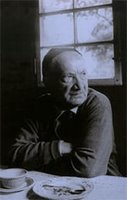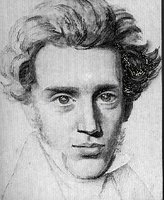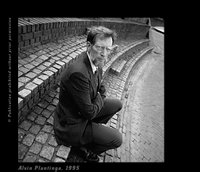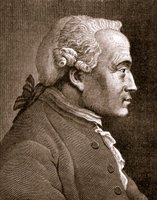 What is the meaning of being?
What is the meaning of being?Astonishingly, the great philosopher Martin Heidegger argued that we have not ever even posed the question of the meaning of being. At least not in any radical way. So he set out to pose this question with all philosophical radicality, and not take its answer for granted any more. And his Sein und Zeit--Being and Time--is his first report back from his investigations. It stands as one of the truly monumental works of 20th century philosophy, and has exerted a contemporary influence wider than almost any other single text.

This spring we have the unique opportunity to offer a Major Author's course on Martin Heidegger, in which Being and Time will be the primary focus. A close reading course, Prof. Aron Reppmann will be your guide on this amazing journey. Heidegger's influence has been decisive upon contemporary Continental philosophy, upon theology and upon so-called postmodernism in the arts and culture in general. Any student interested in these issues will profit from this course.
PHIL 295 will meet Tuesdays and Thursdays at 9:30 AM.
 Why is there something, rather than nothing?
Why is there something, rather than nothing? From Thales to Democritus, from Socrates and Plato to Aristotle, from the Stoics to the neo-Platonists, and from St. Augustine (on the right) to St. Anselm and St. Thomas: PHIL 201 is an encounter with the figures and texts that have shaped our culture. It begins with the ancient Greeks and culminates in the Medieval synthesis of Christian faith and reason. This is an excellent course for anyone with a curiousity about the great ancient worldviews that helped shape Christian thought.
From Thales to Democritus, from Socrates and Plato to Aristotle, from the Stoics to the neo-Platonists, and from St. Augustine (on the right) to St. Anselm and St. Thomas: PHIL 201 is an encounter with the figures and texts that have shaped our culture. It begins with the ancient Greeks and culminates in the Medieval synthesis of Christian faith and reason. This is an excellent course for anyone with a curiousity about the great ancient worldviews that helped shape Christian thought.
 Join the philosophy department for pizza and a movie next Wednesday night, 25 October. Let go of the stress of midterms and watch with us Wim Wenders's existential classic,
Join the philosophy department for pizza and a movie next Wednesday night, 25 October. Let go of the stress of midterms and watch with us Wim Wenders's existential classic,  But what if an angel could lose his wings and become a human? Could experience love and pain, fear and joy, just like the rest of us? The angel Damiel might just get his wish.
But what if an angel could lose his wings and become a human? Could experience love and pain, fear and joy, just like the rest of us? The angel Damiel might just get his wish.



 Ever wondered about all those –Isms and –Ists that the theorists are always theorizing about?
Ever wondered about all those –Isms and –Ists that the theorists are always theorizing about? 